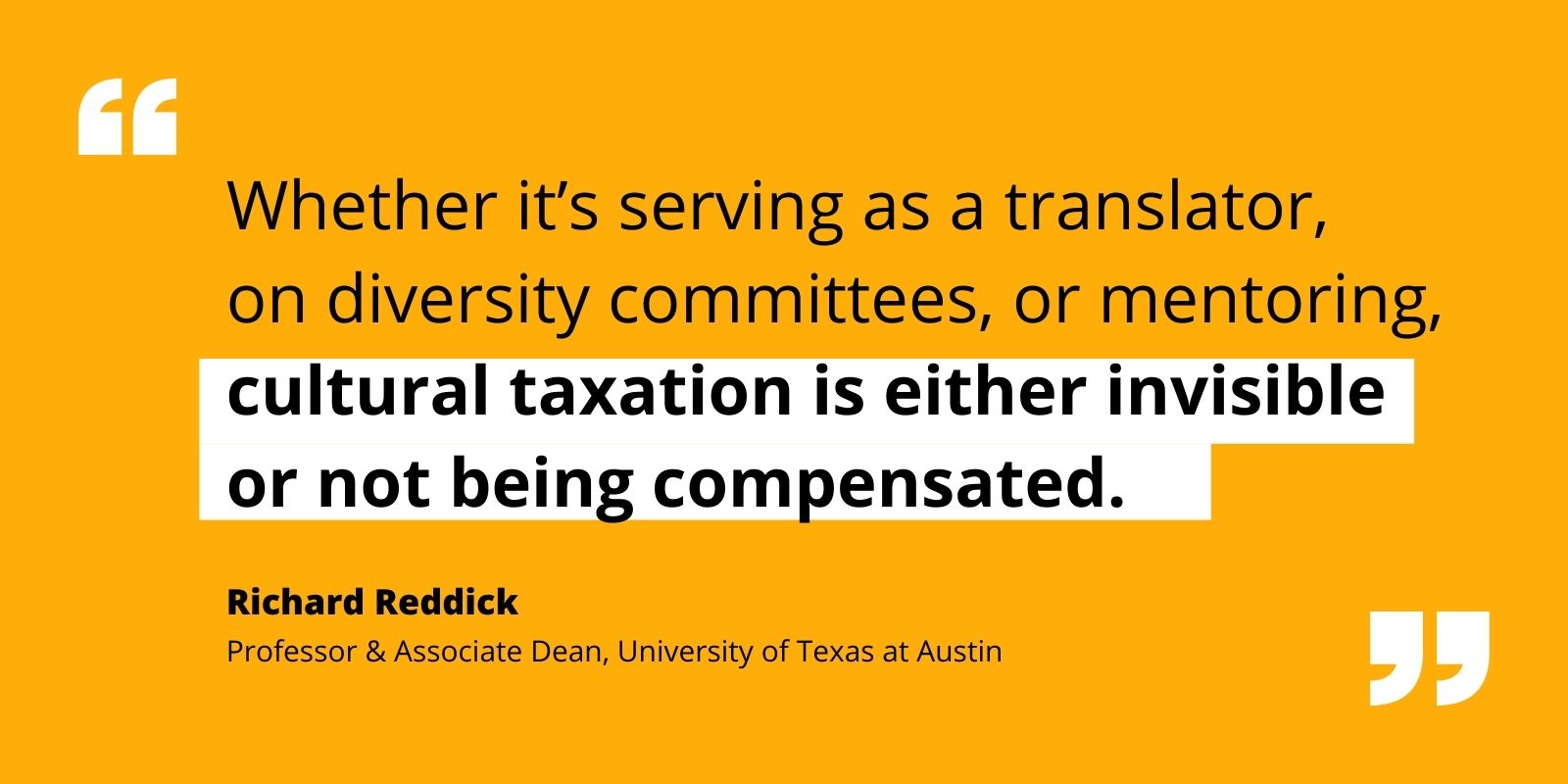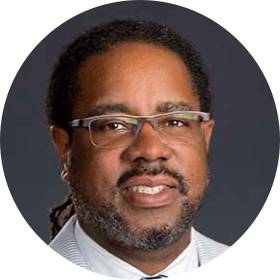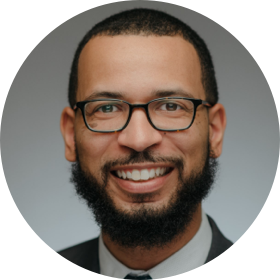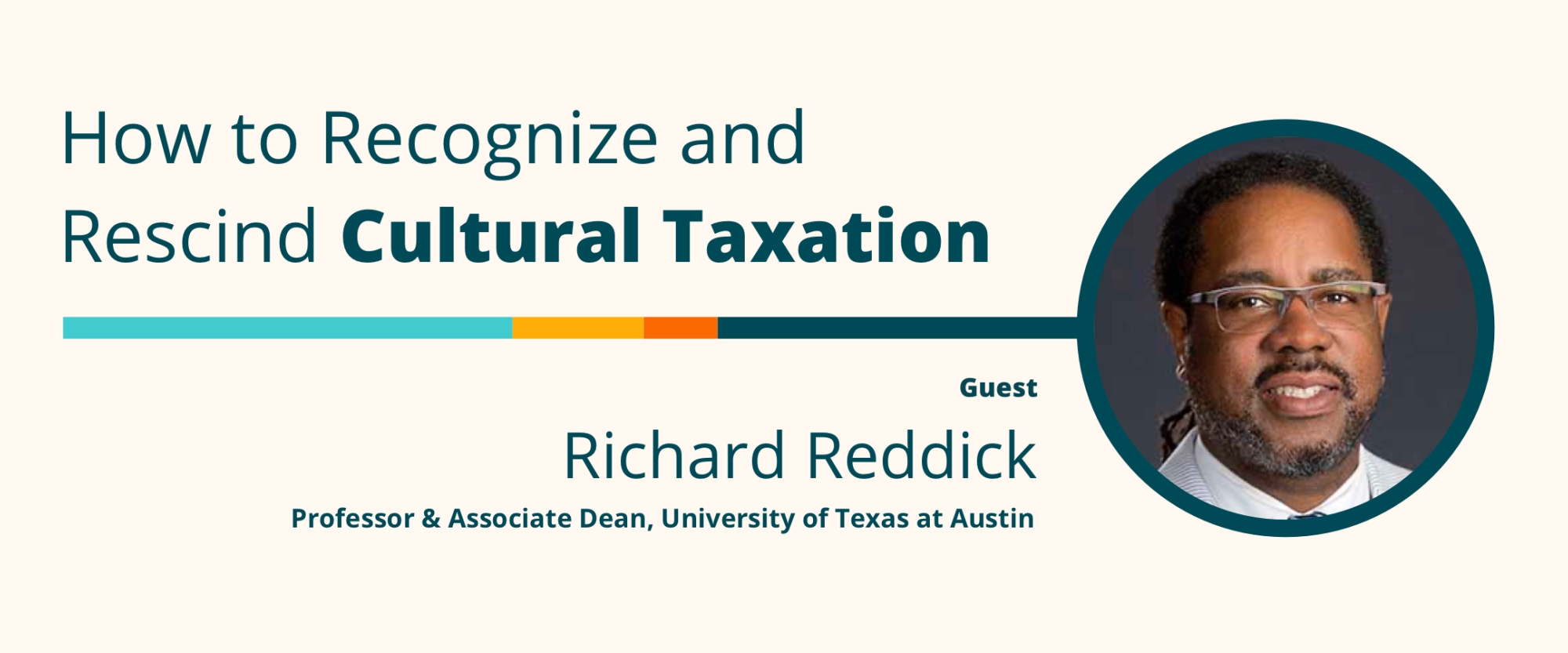Note: This interview in the Scholarship to Practice Series originally aired on October 22, 2020 as part of the University Innovation Alliance’s Innovating Together podcast, appearing live on Facebook, Twitter, and LinkedIn.
The University Innovation Alliance (UIA) is excited to bring you the Innovating Together Podcast, a collaboration with Inside Higher Ed. I'm the UIA's Executive Director, and my co-host for Innovating Together's Scholarship to Practice series is Derrick Tillman-Kelly, Director of UIA's Fellows Program and Network Engagement. Scholarship to Practice focuses on relevant yet perhaps not widely known research on topics that higher ed leaders need to hear about. For the 10/22/20 episode, we spoke with Dr. Richard Reddick, Professor and Associate Dean at the University of Texas at Austin. Dr. Reddick was eager to share his thoughts on the phenomenon of cultural taxation, a well-intentioned but ultimately unfair consequence in many higher ed institutions seeking to practice equity and inclusion.
The Problem of Cultural Taxation
When we asked Professor Reddick to describe his job, he said, "I often talk about the fact that I have three jobs. I have the teaching part, I have the research piece, and then finally the service part, which is the part that my associate dean role is really about – the University of Texas is a state-flagged university, constitutionally mandated to serve the citizens of Texas. Running op-eds, visiting schools, visiting community members, or working in community agencies, that’s a big part of what I do. It’s actually lifting up the hood, getting our fingers dirty, and getting into the work."
Professor Reddick's actual job description presents a relevant framework for exploring the concept of cultural taxation, which he attributes to Amado Padilla (Stanford Graduate School of Education).
"It’s the invisible labor done by folks of color to support diversity missions at universities, particularly predominantly white institutions," he explained. "So whether it’s serving as a translator for folks who are coming, speaking a different language, whether it’s sitting on diversity committees to make the university more accessible and more appealing to people of color, or it’s doing some of that mentoring and advising that happens so often, the issue is that cultural taxation is happening either invisibly or in a way that’s not being compensated or recognized. Often, people who engage in work that’s culturally taxing are not getting the hikes in their salary, they’re not getting the promotions in their job positions because of the work; it’s invisible. We’ve heard Professor Geneva Gay of U.W. call it problematic popularity. The Black tax, the brown tax, the women tax, the gender tax, those are all variants of cultural taxation."

The Difference Between Participation and Taxation
Participation is necessary, of course. But how and where do we draw the line between marginalized faculty and students giving what's necessary and being unfairly taxed? Professor Reddick understands that it can be a matter of fine-tuning.
"As an alumnus," he admitted, "as a faculty member, an administrator, somebody who’s deeply involved, who teaches a history of higher education class, it’s really in my wheelhouse to do this work. But I do draw a paycheck from the institution, so it’s very different for me. When I’ve worked with diversity/equity issues and students, I always respect when they say, 'Dr. Reddick, I have so much going on, I don’t know if I have the bandwidth.' And I try to advocate for resources. Sometimes we can’t give them a stipend, but can we give them recognition or some kind of leverage so they feel that the time is being valued?"
He shared what he called one of the biggest crimes in higher education. "We benefit so much from the diversity and experiences that students bring," he said, "our queer students, our Black students, our Latino students, our Asian-American students, students of color, international students. But what are we doing to help them with that? I think recognition, acknowledgments, academic credit for some of the work that’s being done will be really meaningful. And those are the kind of things you don’t figure out until usually you’re in grad school, you’re like, 'Oh, I could do an independent study on this.' So part of our job is making sure we recognize that we’re asking students to do above and beyond what they’re expected to do, and creatively think about ways we can inform and assist them."
Why Administrators Need to Step Up
Professor Reddick offered some ideas about how administrators can address the problem of cultural taxation.
"Last year at U.T. Austin, we launched the Distinguished Service Academy," he told us. "It’s a recognition that is compensated for the work that myself and my four other colleagues who’ve been recognized have done over the years. We’ve had this longstanding commitment to community engagement, mentoring, and service. I think that elevates the work because you now have a title, you now have compensation, you would now have recognition. I’ve been trying to be really upfront to people that I'm on the Distinguished Service Academy, not because I'm bragging, but because I want it to be known that the university has recognized my contributions in this area and so many other colleagues are doing this work as well."
"It’s about recognition and tenure promotion," he went on, "and really leveraging the fact that institutions are often working from deficits, from longstanding inequities and problems when it comes to community of color relationships. And faculty of color, students of color, grad students of color, and staff of color are often bridging that divide in the community, building credibility for the institution. That’s worth something. I want people to see their merit pay increase because they’re doing this work – and frankly, these are the only people who can do the work. How do you make amends or build bridges to communities that have already had their trust broken? Somebody from that community is often the person to say, 'Let’s start anew.'"
Allyship Is Everybody's Work
Professor Reddick believes this must be a community effort. "White faculty, administrators, student leaders need to step up," he stressed. "Understanding this issue of equity inclusion is not simply the domain of people of color or people with marginalized identities. It is everybody’s work. And certainly, there’s a position for everybody to play, but it’s important that all folks, especially white folks, are involved in the process. And that allyship, that co-conspiratorial effort is super appreciated and super needed.
"So yes, let's bring leaders into the conversation to say, 'You actually run things, you pull levers, you control budgets, address this.' We need to make this structural change in the academy and say, 'You know what? I look at your publication or grant writing activity, and I see an opportunity for me, as a leader, to say, "I want to make sure that your critically important work is recognized and not dismissed. You’ve done work that makes it possible for your other colleagues to do work. So not only is your work important, it’s generative.”'"
Resources for Understanding Cultural Taxation
While the dynamic of cultural taxation isn't new, the idea may be new to many people. Professor Reddick offered a number of resources for broadening our understanding of how we can reverse this detrimental trend. Since Amado Padilla's groundbreaking work mentioned above, others have expanded on the idea.
"This summer, there was a Nature article explicitly about cultural taxation. I was reading the book Written/Unwritten not too long ago, narratives of people of color in the tenure promotion process. Inside Higher Education had the article about 'The Souls of Black Professors,' which really encapsulates what it looks like and what are the lived experiences. One of the examples they talked about is Lesley Lokko, the Dean of Architecture at City University of New York, who resigned her position and said, 'This is not a space that’s conducive for equity and inclusion, and therefore I'm not going to put myself through that physical, emotional wringer of engaging in that work.' And that’s a wake-up call. I would also point out KerryAnn O’Meara, who has done some great work on faculty workloads."
Professor Reddick encourages us to assess and quantify how service is distributed and encourages leaders to ask themselves, "Who’s mentoring? Who’s advising? Who’s leading dissertations? Who’s sitting on committees and actually laying it out? When we rely on others, we create this perpetual inequity. We need to also understand how it’s not just race, but gender. Women of color, in particular, often serve this nurturing role because, quite frankly, my male colleagues and I, we often opt out and say, 'We don’t do the emotional stuff' – but the work is emotional, right?"
"When you unpack faculty lives," he reflected, "you’re really surprised to see how much some of your colleagues are doing that you don’t know about: mentoring students in different parts of the university, doing community service, bringing some more incisive aids, or fixing the messes you’ve made. So those are all parts of this. So let’s lean into the conversation."
Links Mentioned in This Episode
• University of Texas at Austin
• Cultural taxation (invisible labor expected from members of marginalized groups to support diversity missions)
• Amado Padilla (Stanford Grad School of Ed academic who coined the term "cultural taxation")
• Professor Geneva Gay (Professor of Education at University of Washington-Seattle)
• Nature article explicitly about cultural taxation ("The time tax put on scientists of colour" in Nature, 6/24/20)
• Written/Unwritten: Diversity and Hidden Truths of Tenure, Patricia A. Matthew, Ed.
• "The Souls of Black Professors" (Inside Higher Ed, 10/21/20)
• Lesley Lokko (Dean of Spitzer School of Architecture at C.U.N.Y., as reported in Inside Higher Ed, 10/13/20)
• KerryAnn O’Meara (Professor of Higher Education and Immediate Past President of ASHE)
Keeping Up With Dr. Richard Reddick
Dr. Reddick is on Twitter as @DrRichReddick and available by email at richard.reddick@austin.utexas.edu.
Bios of Guest Luminary and Co-Hosts

Richard J. Reddick, Ed.D. is the inaugural Associate Dean for Equity, Community Engagement, and Outreach for the College of Education at The University of Texas at Austin, and Professor in the Program in Higher Education Leadership in the Department of Educational Leadership and Policy (ELP) at U.T. Austin, where he has served as a faculty member since 2007. He is the faculty co-chair for the Institute for Educational Management (IEM) at Harvard University, and teaches in the Institute for Management Leadership in Education. With a background of teaching in Houston public schools and working in student affairs at Massachusetts Institute of Technology, California Polytechnic State University, San Luis Obispo, and Emory University, Dr. Reddick currently teaches graduate courses on the history of higher education, multicultural modes of mentoring, social and cultural contexts of education, and qualitative research methods. He also teaches undergraduate courses in Plan II Honors and the Signature Course program in Undergraduate Studies. A winner of many teaching and academic leadership awards, Dr. Reddick earned his B.A. in Plan II Liberal Arts Honors at U.T. Austin, and master's and doctoral degrees from the Harvard Graduate School of Education in 1998 and 2007. He has published articles in the top education journals, as well as co-authoring and co-editing four books. Additionally, he's a Wheel of Fortune and Jeopardy! champion, husband to Sherry, and dad to a 12- and 10-year old.

Co-Host: Bridget Burns, Executive Director, University Innovation Alliance
Dr. Bridget Burns is the founding Executive Director of the University Innovation Alliance (UIA). For the past decade, she has advised university presidents, system chancellors, and state and federal policy leaders on strategies to expand access to higher education, address costs, and promote completion for students of all backgrounds. The UIA was developed during Bridget’s tenure as an American Council on Education (ACE) Fellowship at Arizona State University. She held multiple roles within the Oregon University System, including serving as Chief of Staff and Senior Policy Advisor, where she won the national award for innovation in higher education government relations. She was a National Associate for the National Center for Public Policy and Higher Education, and has served on several statewide governing boards including ones governing higher education institutions, financial aid policy, and policy areas impacting children and families.

Co-Host: Derrick Tillman-Kelly, Director, University Innovation Alliance Fellows Program and Network Engagement
Dr. Derrick L. Tillman-Kelly serves as the Director of the UIA Fellows Program and Network Engagement for the University Innovation Alliance. He previously served in multiple roles at The Ohio State University, including as the inaugural UIA Fellow and special assistant to the director of the Center for Higher Education Enterprise. Dr. Tillman-Kelly earned his Ph.D. in educational policy and leadership with a specialization in higher education and student affairs from Ohio State; a master’s degree in higher education and student affairs from Indiana University; and a bachelor’s degree from Illinois Wesleyan University.
About Scholarship to Practice
Scholarship to Practice is an event series that happens live on Facebook, Twitter, and LinkedIn. It also becomes a podcast episode. We interview higher education scholars, researchers, and academics that distill how a practitioner or administrator could apply learning in real-time to improve student success. At the UIA, we know that we need to bridge that gap between scholarship and practice if we’re going to stand a chance of improving student success. We all need to work together leveraging research in the field and identifying where we need more research to support greater innovation in higher ed. With its short and conversational format, this show is designed to help bridge that gap by elevating the relevant research we all could be using in our daily lives.
Rate, Review & Subscribe
Learn why hundreds of people have rated this new podcast 5 stars! Please join others and rate and review this podcast. This helps us reach and inform more people -- like you -- to help increase the number and diversity of college graduates in the United States.
Click here, scroll to the bottom, tap to rate with five stars, and select “Write a Review.” Then be sure to let us know what you loved most about the episode! Also, if you haven’t done so already, subscribe to the podcast. We’ll be adding a bunch of bonus episodes to the feed and, if you’re not subscribed, there’s a good chance you’ll miss out.

